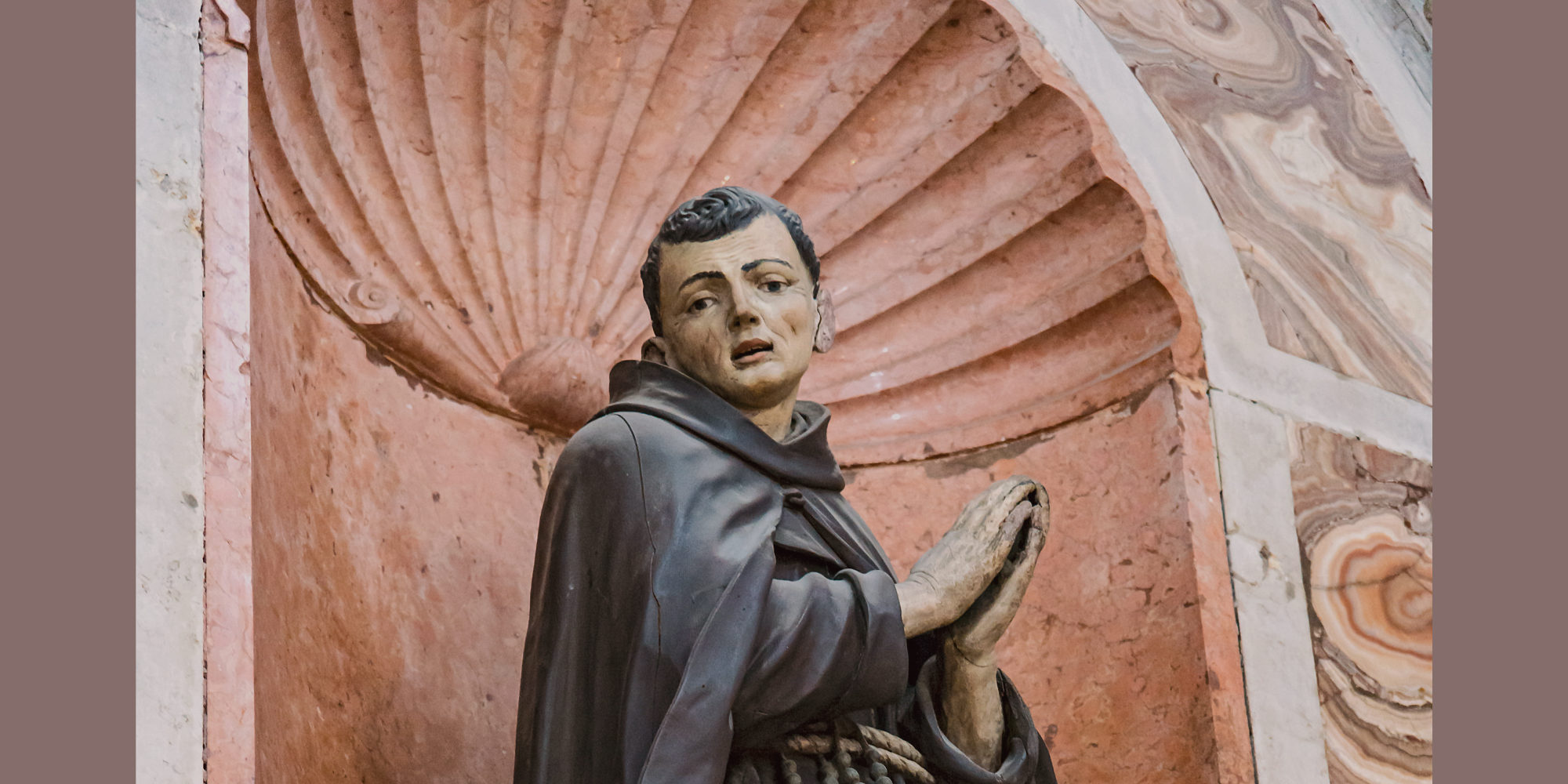St. Paschal Baylón, patron saint of the Eucharistic Congress
Date Published: July 16, 2024
By Eli Pacheco
As the Eucharistic Congress opens Wednesday in Indianapolis, a call to prayer for all involved is in order. And one of the patron saints people will turn to is of the Order of Friars Minor.
Pope Leo XIII proclaimed St. Paschal Baylón, OFM, the patron saint of Eucharistic congresses and societies in 1897.
St. Paschal’s devotion to the sick and reverence for the Eucharist is well documented, making him the perfect choice as patron saint.
St. Paschal grew up in a large, poor family in the Kingdom of Aragon, Spain, during the Spanish Empire’s heyday in the 16th century. His parents, Martino Baylón and Isabel Jubera, were pious and instilled in him a love for the Blessed Sacrament.
He taught himself to read at a young age while working in the fields as a shepherd, praying, meditating and praising the Lord and the Virgin Mary. He dedicated his life to penance and joined the Order in 1564.
He was asked to consider becoming a priest but chose to serve as a lay brother. He worked humbly in various roles, including as a cook, gardener and porter. At night, he spent hours in prayer before the Blessed Sacrament.
He gained a reputation as a mystic but tried to deflect attention from himself. Many illustrious figures came to him for counsel.
St. Paschal lived an interesting life of service to God and had a strong devotion to the Eucharist.
Eight interesting facts about St. Paschal Baylón
1. St. Paschal devoutly observed the vow of poverty
St. Paschal was famously frugal with food or materials donated to the friars and sought to give whatever he could to the poor. He was so generous that sometimes the friars needed to curb his liberality!
2. People sought out his prudent advice
St. Paschal often prayed before the Blessed Sacrament and the faithful turned to him for his wisdom. Many miracles unfolded immediately after his death near his tomb.
3. St. Paschal was a shepherd
He worked alongside his father in his adolescence, praying and singing to God and the Virgin Mary as he worked. He paused his labor in the fields and prayed whenever he heard the church bell marking the consecration of the Eucharist.
4. His birthday influenced his name
He was born on May 16, 1540, on the feast of Pentecost, called Pascua Rosada in Spanish, which inspired his name. His mother instilled in him a devotion to the Blessed Sacrament.
5. He was initially turned away from the Order of Friars Minor
It is likely because he was only 18. He continued working as a shepherd, staying in a Franciscan friary and visiting its Marian shrine. He was eventually accepted into the Order and made his profession at age 24 in 1565.
6. He almost died in France
He traveled to Paris to deliver letters to the Observant Franciscans in 1576. He was beaten on the trip after a heated dispute over the Real Presence of Christ in the Eucharist, suffering an injury to his shoulder that plagued him for the rest of his life.
7. His nickname was ‘theologian of the Eucharist’
After returning from France, he wrote a collection of reflections on the Blessed Sacrament, proving the Real Presence of Jesus in the Eucharist and the divine power given to the pope. These writings were central to his life and legacy.
8. He met Sister Death during Pentecost 1592
He died in the Vila-Real friary in the Valencia province in Spain during the feast on which he was born. Known as a mystic, he always deflected praise to God. He is buried at the friary. He was canonized by Pope Alexander VIII on Oct. 16, 1690.
What is a Eucharistic Congress?
A Eucharistic Congress is an assembly of clergy, laity and religious with an important objective: to witness Jesus’ presence in the Eucharist. There are international and national congresses, and the events commonly include:
- Eucharistic adoration and processions
- Teaching, prayer and study sessions
- Open-air Masses
Where will the Eucharistic Congress be held?
The National Eucharistic Congress will be held in Indianapolis July 17 to 21, 2024 at Lucas Oil Stadium, with a capacity of 70,000, and other nearby venues. It is the 10th National Eucharistic Congress in the United States, with estimates of 50,000-80,000 people expected to attend, gathering for daily special sessions on themes of the day.
Photo of a wooden statute of Pascal Baylón (1691) by Marchiò Molziner courtesy of Didier Descouens / Wikipedia Commons

